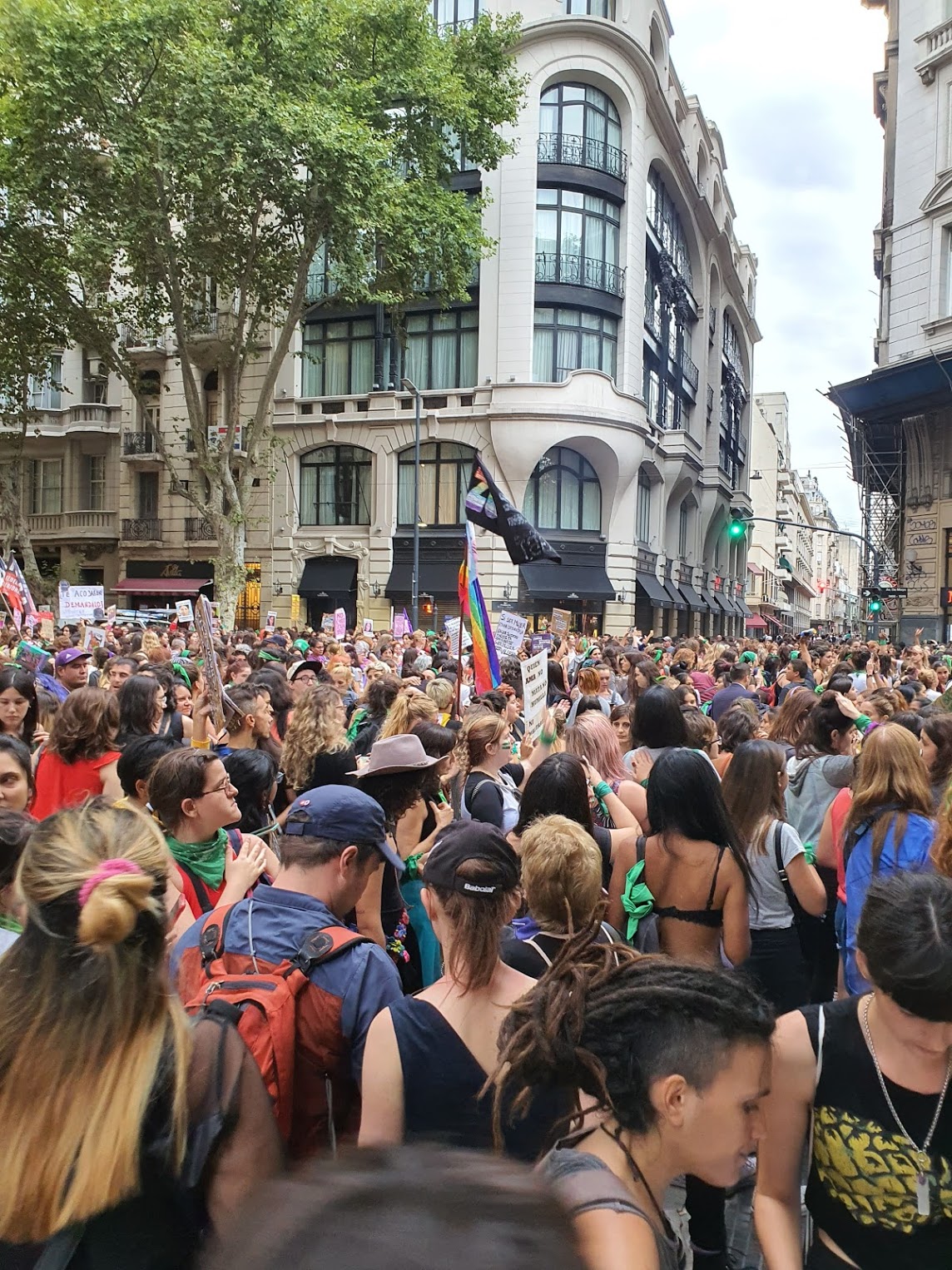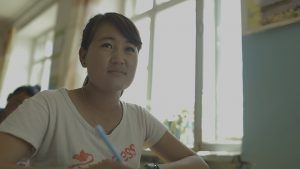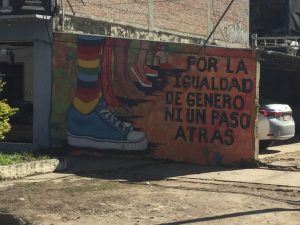Mainstreaming Gender, Diversity and Inclusion in Open Government
Cómo incorporar perspectivas de géneros, diversidad e inclusión en el Gobierno Abierto.
The evidence is clear: we know that inequality exists and that it violates the rights of women, the LGBTQIA+Increasing opportunities for participation and creating accountability mechanisms for the LGBTQIA+ community in policy-making and service delivery can ensure that their voices are heard and changes ar... community, people living with disabilities, indigenous peoples and other collectives. We know that these gaps and inequalities increase with intersectionality. We also know that corruption and the lack of transparencyAccording to OGP’s Articles of Governance, transparency occurs when “government-held information (including on activities and decisions) is open, comprehensive, timely, freely available to the pub... More and accountability have the greatest negative impact in these groups, enhancing inequality exponentially.
If we share the evidence, we must focus on what to do and how. To this end, the open government approach – due to their intrinsic characteristics – transparency, participation, data openness – is a unique opportunity to:
- Draw attention to the existing gaps, inequalities and exclusions, mainstreaming genderOGP participating governments are bringing gender perspectives to popular policy areas, ensuring diversity in participatory processes, and specifically targeting gender gaps in policies to address gov... More equity and equality, diversity and inclusionOGP participating governments are working to create governments that truly serve all people. Commitments in this area may address persons with disabilities, women and girls, lesbian, gay, bisexual, tr... More in every commitmentOGP commitments are promises for reform co-created by governments and civil society and submitted as part of an action plan. Commitments typically include a description of the problem, concrete action... by including disaggregated data and empirical evidence.
- Advance reforms based on concrete, operational and measurable actions that respond to the need of mainstreaming the gender perspective, diversity and inclusion, building on the following questions:
- How do languages contribute to sexist, binary biases that exclude people, groups and identities?
- What groups are not participating in open government processes and why?
- Are voices, situations and stakeholders considered in a broad, diverse and intersectional matter?
- Which data should we generate, analyze and communicate to close the gender, diversity and inclusion gaps?
- How can participation be broadened, including diverse agendas, situations, interests, and abilities of individuals and groups?
The research “Integrity and gender in open government commitments”, published by Poder Ciudadano (Argentinian Chapter of Transparency International) aimed to collaboratively strengthen transparency and anticorruption commitments of Argentina’s fourth open government action plan by applying Canada’s GBA+ tool, which aims to assess how different groups experience policies, programs and initiatives. It also includes a guide to help Open Government PartnershipThe Open Government Partnership (OGP) is a multi-stakeholder initiative focused on improving government transparency, ensuring opportunities for citizen participation in public matters, and strengthen... More member countries apply the tool, increasing the inclusivity of their commitments and their co-creation processCollaboration between government, civil society and other stakeholders (e.g., citizens, academics, private sector) is at the heart of the OGP process. Participating governments must ensure that a dive.... We used GBA+, as it is a user-friendly tool that creates a baseline, assessment and roadmap to build links between gender, diversity and inclusion activists and anti corruption activists by means of open government policies.

Why are these links necessary? If anti corruption activism fully incorporates the gender, diversity and inclusion perspectives, we will be better able to include and protect the most vulnerable groups from corruption, including women and LGBTQIA+ groups. We can also advance reforms to ensure that democratic institutions become more inclusive and equal, contributing to our mission to protect human rightsAn essential part of open government includes protecting the sacred freedoms and rights of all citizens, including the most vulnerable groups, and holding those who violate human rights accountable. T.... In turn, if gender, diversity and inclusion organizations and movements take ownership of the integrity and anti corruption instruments, they will be able to strengthen their agendas, promoting transparent and accountable public policies and institutions that make proper use of the resources they manage, securing rights for every person
Because, despite the contexts, if we want to build more equal, equitable and diverse societies, we must be plural and move from words to action with an indisputable motto: open States will be gender, diversity and inclusion- sensitive and receptive or they will not be.
Los diagnósticos son claros: sabemos que la desigualdad existe y vulnera derechos de mujeres, personas LGBTIQA+, personas con discapacidad, pueblos indígenas y otros colectivos. Sabemos que esas brechas y desigualdades se acrecientan interseccionalmente. Y también sabemos que la corrupción, la falta de transparencia y la ausencia de rendición de cuentas, son factores que redoblan su impacto negativo en estos grupos y hacen que esas desigualdades aumenten exponencialmente.
Ahora bien, si compartimos el diagnóstico, es imperioso concentrarnos en el qué hacer y cómo hacerlo. Y en este punto, las iniciativas de Gobierno Abierto, por sus características intrínsecas -transparencia, participación, apertura de datos- son ventanas de oportunidad privilegiadas para:
- Visibilizar las brechas, desigualdades y exclusiones existentes, aportando el elemento central de todo compromiso con la igualdad y equidad de géneros, diversidad e inclusión: la generación de datos desagregados y evidencia empírica.
- Plantear reformas basadas de acciones concretas, operativas y monitoreables, que recepten las demandas de transversalización de la perspectiva de géneros, diversidad e inclusión, partiendo de preguntas básicas y centrales:
- ¿Cómo desde los usos del lenguaje se construyen sesgos sexistas, binarios y excluyentes de diversas personas, grupos e identidades?
- ¿Quiénes no están participando de los procesos de Gobierno Abierto y por qué?
- ¿Las voces, situaciones y partes contempladas, son consideradas de forma amplia, diversa e interseccional?
- ¿Qué datos nos proponemos producir, analizar y difundir en términos de reducir brechas de géneros, diversidad e inclusión?
- ¿Cómo se plantean los escenarios de participación en términos de convocatorias amplias, sensibles a diferentes agendas, situaciones, intereses y posibilidades de organizaciones, personas y grupos?
En el estudio “Integridad y géneros en los compromisos de Gobierno Abierto” realizado por Poder Ciudadano (Capítulo argentino de Transparencia Internacional), nos propusimos fortalecer colaborativamente los compromisos de transparencia y anticorrupción del 4° plan de acción nacional de Gobierno Abierto de Argentina, aplicando a su evaluación la herramienta GBA+ desarrollada por el Gobierno de Canadá, la cual tiene como fin evaluar cómo diversos grupos pueden experimentar políticas, programas e iniciativas. Además, posee una guía para ayudar a los países que forman parte de la Alianza para el Gobierno Abierto a aplicarlo a todos los compromisos gubernamentales, asegurando que los mismos y su proceso de co-creación sean inclusivos. Utilizamos GBA+, por su carácter amigable, que genera al mismo tiempo una línea de base, una autoevaluación y una hoja de ruta orientadas a tender puentes entre el activismo de géneros, diversidad e inclusión y el activismo anticorrupción, por intermedio de las políticas de Gobierno Abierto.

¿Por qué son necesarios estos puentes? Si desde el activismo anticorrupción incorporamos plenamente la perspectiva de géneros, diversidad e inclusión en nuestro trabajo, podremos proteger y atender mejor a los colectivos más vulnerables frente a la corrupción como las mujeres y personas LGBTIQA+. Y, además, podemos promover reformas de las instituciones democráticas que sean inclusivas y más equitativas, cumpliendo más efectivamente nuestras misiones como organizaciones de derechos humanos. Si las organizaciones y movimientos de géneros, diversidad e inclusión, se apropian de los instrumentos de integridad y lucha contra la corrupción, pueden enriquecer sus agendas específicas, promoviendo con ellas políticas públicas e instituciones transparentes, que rindan cuentas y que con un uso adecuado de los recursos que administran, garanticen el ejercicio pleno de derechos, de todas, todos y todes. Y para todo esto son imprescindibles gobiernos abiertos, transparentes y que rindan cuentas a la ciudadanía.
Porque, a pesar de los contextos, si queremos sociedades más igualitarias, equitativas y diversas, tenemos que ser más, ser plurales y pasar de los dichos a los hechos con un lema cuya actualidad es innegable en todo el mundo: los Estados abiertos serán sensibles y receptivos a la perspectiva de géneros, diversidad e inclusión, o no serán.
Comments (2)
Leave a Reply
Related Content

Gender in OGP
Open government reformers are joining forces with gender and inclusion advocates across the Partnership to better recognize and respond to the lived realities of women, girls, and those across the…
 Challenges and Solutions
Challenges and Solutions Action Plan Against Gender-Based Violence: Participatory Co-Creation in Argentina
Discover how Argentina is mainstreaming gender and diversity issues into the open government agenda through their OGP process and their Action Plan Against Gender-Based Violence.
 Impact
Impact Why Gender, Why Now
Closing gender gaps is imperative to our organization’s growth, success and sustainability, and it is essential that all our fellow citizens - not just half of them! - have the…


David Nathaniel Sasaki Reply
So what happened as a result? What were the commitments? How was the political support developed? Thanks.
Karina Alejandra Kalpschtrej Reply
David, here is the report (in spanish)
https://poderciudadano.org/poder-ciudadano-presento-el-informe-integridad-y-generos-en-los-compromisos-de-gobierno-abierto-un-dialogo-pendiente/
We are working no the implementation process now.
Don’t hesitate to contact us for more information
Kind regards